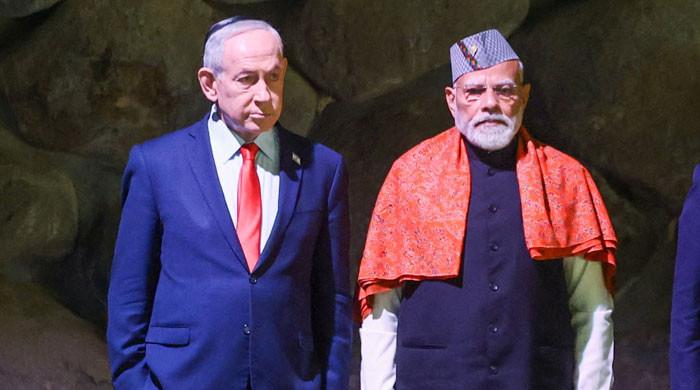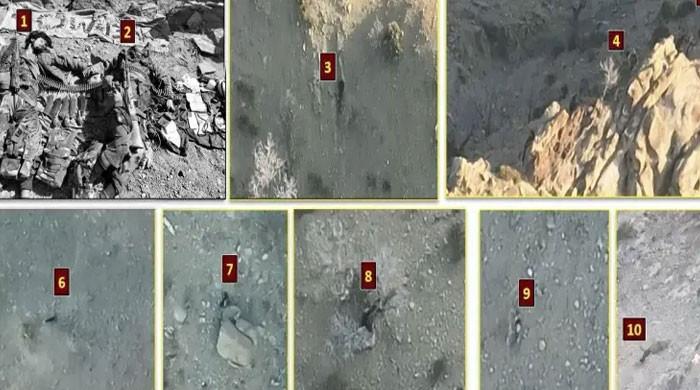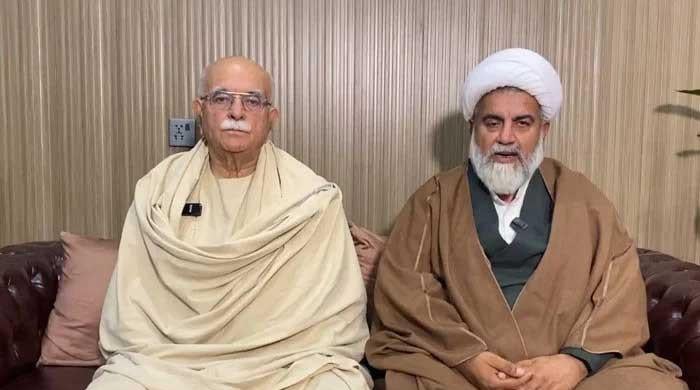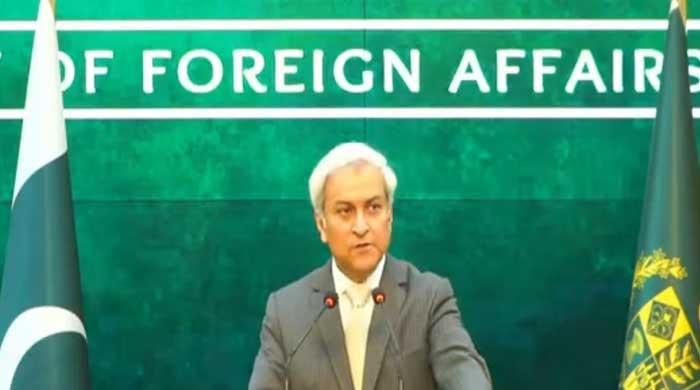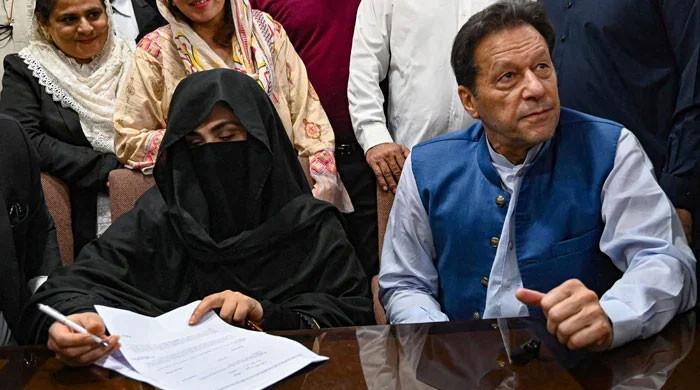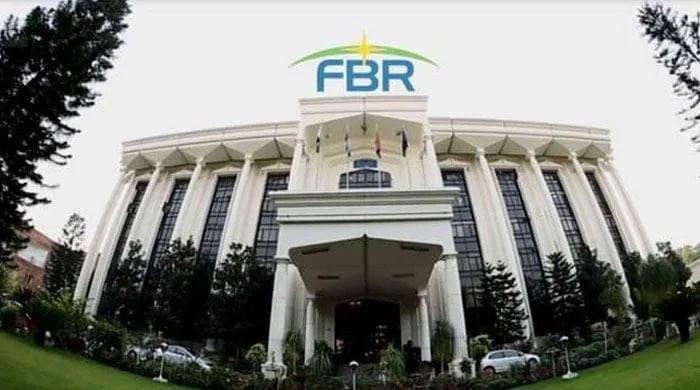In detailed Toshakhana verdict, ECP says authorised to rule on disqualification
Imran Khan "deliberately" concealed facts by not disclosing details of gifts in statement of his assets, ECP says
October 22, 2022
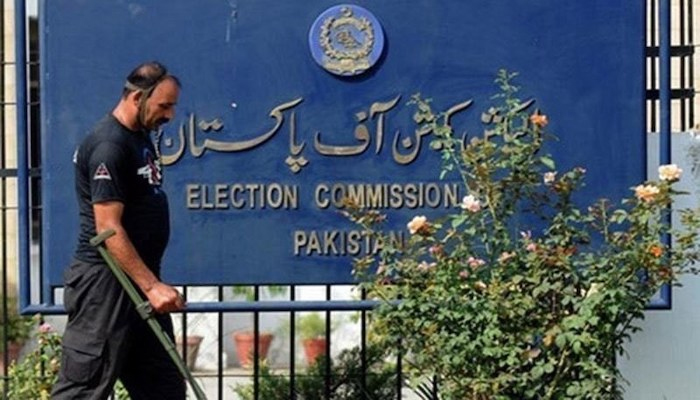
- ECP cites Supreme Court orders to justify authority.
- Imran Khan "deliberately" concealed facts, ECP rules.
- ECP's five-member bench disqualified Khan on Friday.
ISLAMABAD: The Election Commission of Pakistan (ECP) has said that it has the authority to entertain lawmakers' disqualification reference sent to it by the speaker of an assembly in line with the constitution.
The commission's observations were made in the detailed decision — obtained by Geo News Saturday — on PTI Chairman Imran Khan's disqualification in the Toshakhana reference.
In a consensus, the ECP's five-member bench disqualified Khan Friday as he submitted a false affidavit and was found involved in corrupt practices under Article 63(1)(p).
However, Khan has challenged the order of the commission in the Islamabad High Court, praying to the court to set aside the judgment as ECP had no jurisdiction over the matter.
In the detailed verdict, the ECP said: "The Commission is competent to entertain the reference from the Speaker under Article 63(2) of the Constitution and adjudicate upon the same under Article 63(3) and the Question of disqualification as and when raised is not dependent upon time."
The order further added that the commission — under Article 63(1)(p) read with Article 63(2) — has the jurisdiction to entertain the reference forwarded by the National Assembly speaker, with respect to the disqualification of lawmakers.
Quoting Supreme Court's order in “Muhammad Salman vs Naveed Anjum", the ECP said that it is empowered to decide a disqualification case and if it deems fit, then the lawmaker can be disqualified.
The commission mentioned that Khan has admitted that he retained five gift items after paying a total amount of Rs11,684,250 (eleven million six hundred eighty-four thousand two hundred fifty) and that the total cost amount has been declared against precious items in the statement of assets and liabilities for the year 2020-21.
The same declaration has also been made in the Tax Returns for the year 2020-21. However, Khan, according to the ECP, declared them under the heading of personal use in his declaration when he should have declared them under the heading of moveable assets.
"No details of the gift items in regard to particulars of items have been disclosed in column number 3 of Form-B [...] the respondent was required to declare these items under various headings specifically defined in Form-B under the main heading of moveable assets," the ECP mentioned.
'Deliberately concealed' facts
The ECP — after hearing arguments from both sides and reviewing the evidence — said that Khan "deliberately concealed" facts by not disclosing the details of gifts in the statement of his assets and liabilities for the year 2018-19, nor accounting for the sale proceed.
He has also not provided details of the gift items as required under column number 3 of Form-B, the ECP said, adding that the ex-premier has also failed to annex the details of cash and bank account of the sale proceeds.
"The amount allegedly received in his bank account does not commensurate with the assessed value of the gift items. Hence, the respondent has filed false statement and incorrect declaration in material particular for the financial year 2018-19."
The order mentioned that the respondent has also made evasive and ambiguous statements in his written reply that the gifts purchased by him during the financial year 2019-20 were further gifted by him or on his behalf to others.
"However, the relevant column j(i) of FormB is marked as N/A and there is no explanation in the remarks of column 3," the commission said.
Therefore, the ECP said, it has been established that he deliberately concealed material facts and submitted a false declaration of his assets and liabilities — in particular material which entails serious consequences under the Constitution and law.
The ECP said Khan "intentionally and deliberately violated" the provisions contained in Sections 137, 167, and 173 of the Elections Act, 2017, and has made false statements and incorrect declarations before the commission in the statement of assets and liabilities filed by him for the year 2020-21.
"Hence, attracts disqualification under Article 63(1)(p) of the Constitution read with Sections 137 and 173 of the Elections Act,2017," the order added.
"...we are of the considered opinion that the respondent [Khan] has become disqualified under Article 63(1)(p) of the constitution read with Sections 137, 167, and 173 of the Elections Act,2017, consequently he ceases to be a member of the National Assembly of Pakistan and his seat has become vacant accordingly."
The ECP said the PTI chairman has also committed offences of corrupt practices defined under Sections 167 and 173 of the Elections Act, 2017, punishable under Section 174 of the Elections Act, 2017.





